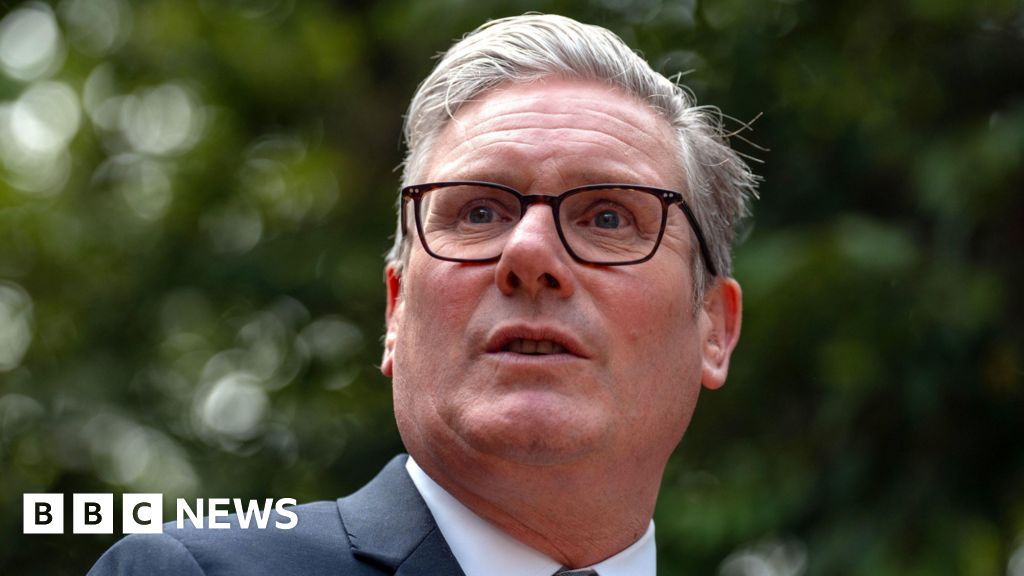By Chris Mason
By Monday night, those familiar with the whipping spreadsheet were warning that the situation was “touch and go”.
It was clear from the furrowed brows of senior Labour figures by the middle of Tuesday that there was much more anxiety at the top of government than the public numbers would have suggested.
And yet Work and Pensions Secretary Liz Kendall returned to the Commons and repeated what the government was still intending to do – change the eligibility criteria for the Personal Independence Payment (Pip) in November of next year.
By mid-afternoon, Deputy Prime Minister Angela Rayner was frantically hitting the phones trying to persuade Labour MPs.
Suddenly, and again, they were worried about losing.
Word then reached Downing Street the numbers might be closer to 75 or 80 rebels – getting very close to the number that would defeat the bill.
The prime minister had no option. Yet another U turn was sanctioned, leaving his plans appearing threadbare, shorn of their central pillars of just a week ago.
And so up stepped the Work and Pensions Minister, Sir Stephen Timms, to announce another climbdown.
But that decision to concede was met with fury by would-be rebels, many of those who saw the whole thing as a shambles and those Labour MPs who had loyally backed the various changes throughout and so had been asked to endorse three different positions in less than a week.
One, referring to senior Labour MP Dame Meg Hillier who had campaigned for the first climbdown, told the BBC:
“Meg better own any autumn tax rises and go out and sell them on the airwaves every day until the end of the parliament. She marched them all up to the top of the hill and couldn’t bring them down again.”
Other MPs were more pithy.
“Jokers” said one, referring both to the government and the rebels.
“Nightmare” was another’s assessment of the situation.
Some government officials are more openly contemptuous of Labour MPs than ever.
One, referring to the rebels who were first elected in 2024, said: “What did they think the job was? They all think they’re JFK because they delivered some leaflets while Morgan [McSweeney] won them the election.”
The implications are head-spinning.
Plenty now believe tax rises in this autumn’s budget are inevitable.
Whether Rachel Reeves will still be chancellor to deliver it is being questioned by Labour figures at all levels.
Some suggest that Kendall ought to resign without delay. She has said she wants to carry on.
One senior government source argued that though the government had been preparing to lift the two-child benefit cap in the autumn, this would no longer be possible.
Meanwhile some at the heart of government are still reeling from a string of interviews given by the prime minister to mark his first anniversary in Downing Street on Friday, taken by some senior figures as a repudiation of the approach he has taken – and therefore of his advisers.
One senior source said: “The atmosphere in there [No 10] is appallingly bad”, accusing the prime minister of “dumping on people who are a staunch part of the team”.
They added: “A lot of it comes back to the question of what does Keir think – about policy and about personnel. It’s the question everyone asks all the time because nobody knows.”
Sir Keir sought to address the personnel element at cabinet on Tuesday, saying he had full confidence in Mr McSweeney, his chief of staff, and that Labour would not have won the general election without him.
All this leaves the prime minister and those around him humbled, bruised, reflective, pensive. Weakened.
When the economy is flat, politics can often be angry, impatient.
The international backdrop turbulent, the domestic bleak.
The 2020s are no easy time to lead.
But Sir Keir will know he has to demonstrably get a grip and quickly, after a deeply damaging episode for him.
